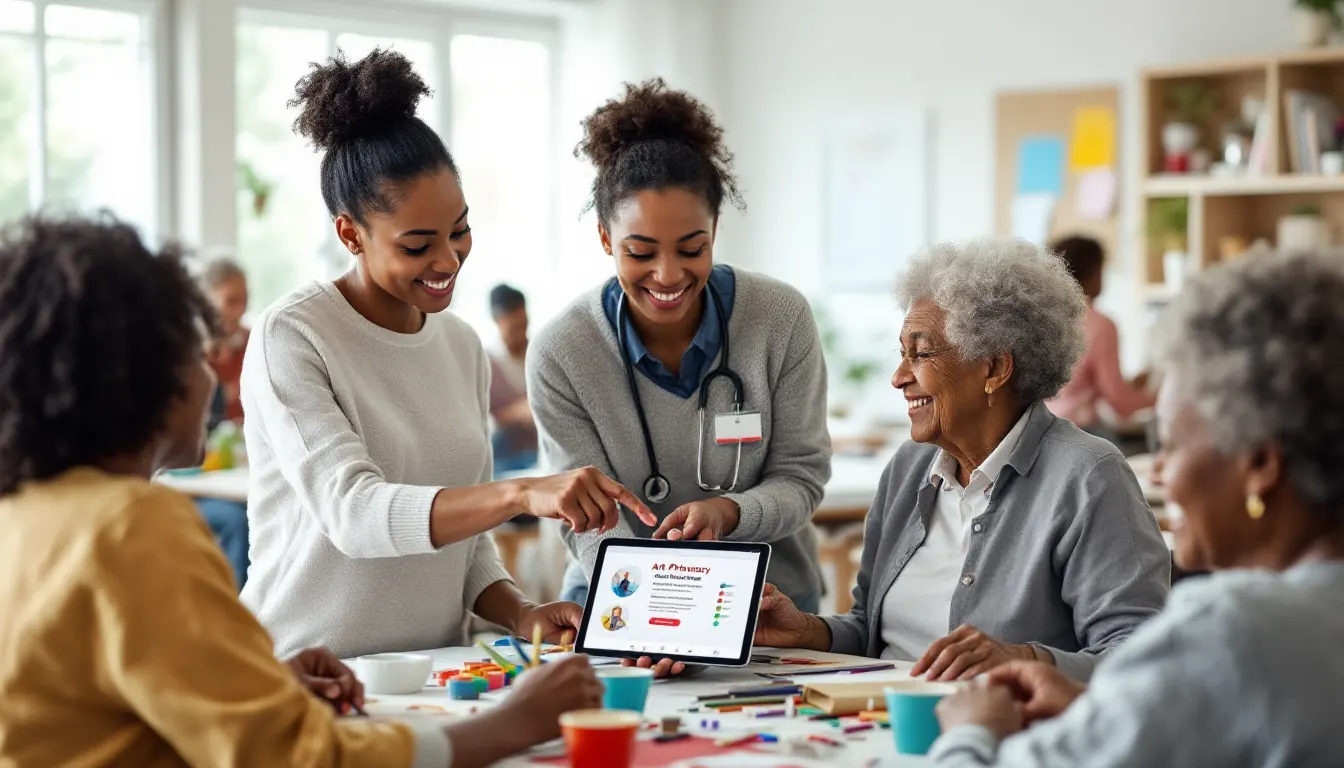Why Art Pharmacy’s Social Prescriptions Redefine Healthcare Leverage

Traditional mental health care meets a limit: only 26% of US demand is met despite millions waiting for service. Art Pharmacy has filled this gap by prescribing social activities, not just meds—offering 35,000 arts and social events since 2022.
Doctors across nine states now link patients to community programs from book clubs to dance classes, a model growing quietly as a health system disruptor.
But this isn’t just about new prescriptions; it’s about designing a system that automates social healing without overloading mental health practitioners.
Long-term health requires more than pills—leveraging communities beats clinics for scalable recovery.
Why This Isn’t Traditional Medicine
Health systems often equate treatment with direct medical interventions. The popular narrative says mental health requires therapy or drugs available only through specialists.
This reliance creates bottlenecks, as demand outpaces supply, and fails to address social determinants like loneliness.
Social prescribing shifts constraints from scarce therapists to abundant community resources—a fundamental constraint repositioning echoing how automation removes routine friction in business.
Instead of pushing more doctors, this model creates an ecosystem where patients harness existing social capital.
How Art Pharmacy Builds Constructive Network Effects
Art Pharmacy acts as a centralized digital platform connecting physicians and community groups with patients needing tailored social interventions.
Its system catalogs over 35,000 “dose” activities in arts and socializing, with standardized assessments measuring anxiety, depression, and loneliness after each event.
This data-driven feedback loop optimizes referrals and helps automate personalized social prescriptions, lowering coordination costs dramatically compared to traditional care.
Unlike isolated clinic visits or generic activity suggestions, this creates compounding leverage by systematically linking medical advice with community participation.
By comparison, local nonprofits offering scattered activities or hospitals pushing generic advice lack coordinated matching and outcome measurements, missing the system-level advantage.
The Strategic Advantage Over AI Companions
AI friend devices and chatbots promise quick loneliness relief but create dependent, transactional interactions focused on usage habits and monetization.
Social prescribing addresses loneliness as a social phenomenon demanding engagement—not just interaction—with real humans in community settings.
Instead of replicating human connection digitally, platforms like Art Pharmacy automate the discovery and access to in-person activities, a scalable system flipping the constraint from limited therapists to massive social networks.
Where AI chatbots battle attention economy dynamics, social prescribing builds durable community bonds, compounding social goodwill beyond short-term usage metrics.
This distinction is crucial: AI responses can’t replace the leverage unlocked by persistent engagement with new face-to-face networks.
What Operators Should Watch Next
The core constraint shifting here is social isolation and access to meaningful community.
Healthcare systems and insurers should prioritize platforms that turnkey matched social prescriptions linked to measurable health improvements, rather than simply expanding clinical headcount.
This opens strategic plays in tech-enabled community health coordination, outcome-based funding models, and partnerships with arts organizations.
Leveraging social ecosystems to treat medical conditions unlocks healing at scale without linearly expanding costly specialist labor.
Related Tools & Resources
Managing relationships and coordinating activities across diverse social prescription programs requires streamlined tools that ensure nothing falls through the cracks. Capsule CRM offers a simple yet effective solution for healthcare providers and community organizations to track patient interactions and optimize referral workflows, supporting the scalable social prescribing model highlighted in this article. Learn more about Capsule CRM →
Full Transparency: Some links in this article are affiliate partnerships. If you find value in the tools we recommend and decide to try them, we may earn a commission at no extra cost to you. We only recommend tools that align with the strategic thinking we share here. Think of it as supporting independent business analysis while discovering leverage in your own operations.
Frequently Asked Questions
What is social prescribing in healthcare?
Social prescribing is a healthcare approach that connects patients to community resources and social activities like book clubs and dance classes, rather than relying solely on medical treatments or therapy. This shifts focus from scarce clinical resources to abundant community programs, addressing social determinants such as loneliness.
How does Art Pharmacy improve mental health treatment?
Art Pharmacy provides tailored social prescriptions by linking patients with over 35,000 arts and social events across nine states. Their digital platform standardizes assessments on anxiety, depression, and loneliness after each event to optimize referrals and automate personalized social healing.
Why is social prescribing considered scalable compared to traditional mental health care?
Unlike traditional care limited by specialist availability, social prescribing leverages existing community networks, creating a scalable system by using social capital and automating referrals. This approach reduces coordination costs and doesn’t require linearly increasing clinical labor.
How does social prescribing differ from AI chatbots for loneliness?
Social prescribing fosters real human connections in community settings to address loneliness, whereas AI chatbots provide transactional digital interactions focused on usage and monetization. Social prescribing builds long-term community bonds that AI solutions cannot replace.
What role do healthcare systems and insurers have in social prescribing?
Healthcare systems and insurers should prioritize platforms that provide matched social prescriptions linked to measurable health outcomes, moving away from simply expanding clinical staff. This enables tech-enabled community health coordination and supports outcome-based funding models.
How many social activities has Art Pharmacy offered since 2022?
Since 2022, Art Pharmacy has prescribed over 35,000 arts and social events across nine states, demonstrating significant uptake as a health system disruptor leveraging community programs for mental health.
What are the benefits of using platforms like Capsule CRM in social prescribing?
Platforms like Capsule CRM streamline relationship management and activity coordination across social prescription programs, ensuring efficient patient tracking and referral workflows. This supports scalable social prescribing by preventing gaps in care delivery.
What is the primary constraint social prescribing aims to shift?
Social prescribing aims to shift the primary healthcare constraint from limited access to scarce therapists to the abundant availability of social networks and community resources, enabling broader and more sustainable mental health recovery.

